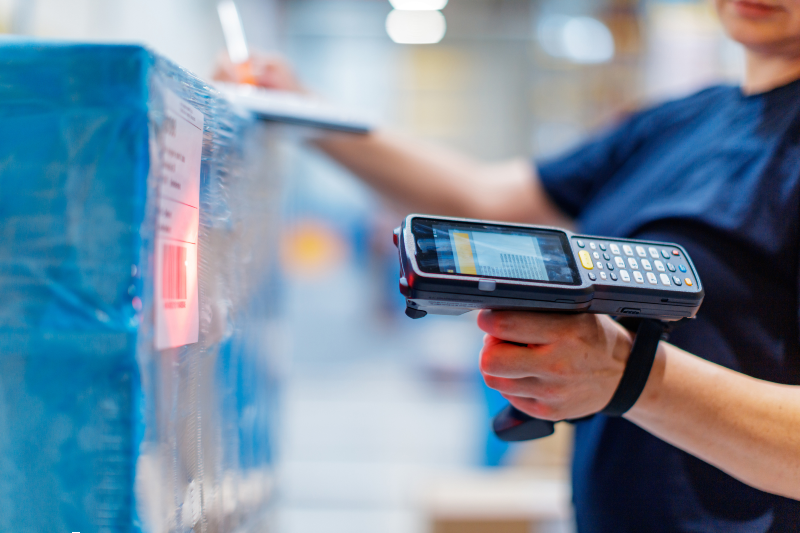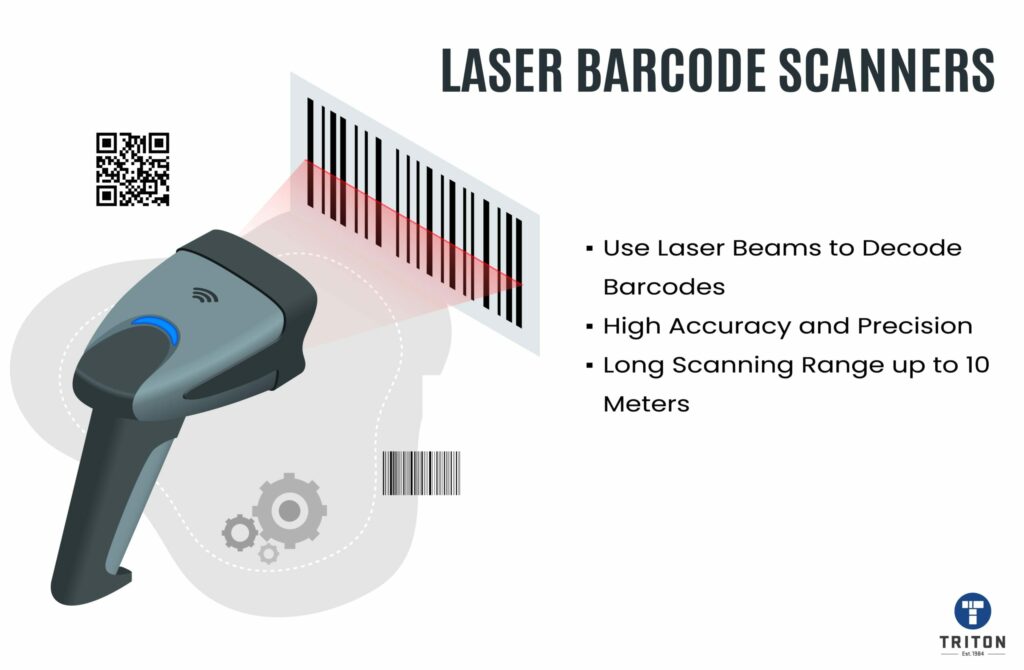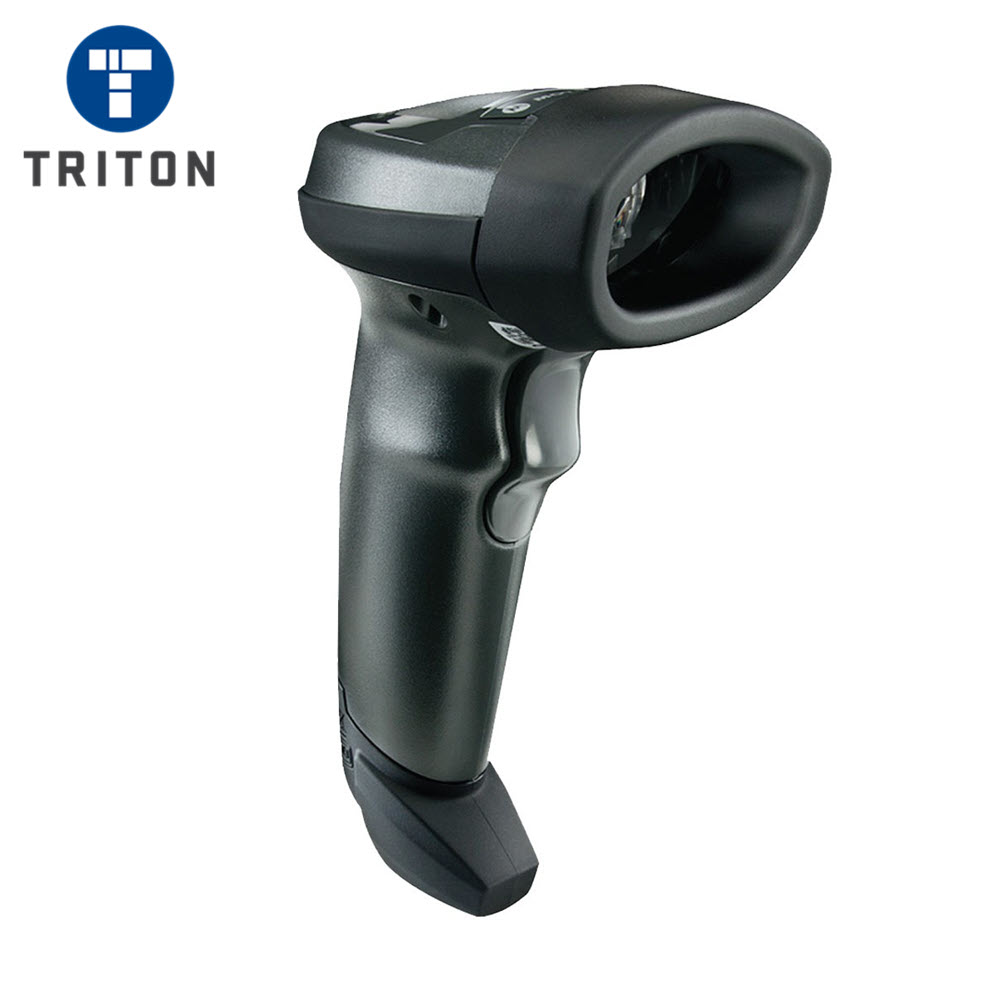Picking the Right Barcode Scanner for Your Company Demands
Selecting the ideal barcode scanner for your business needs a nuanced understanding of your certain operational needs and ecological problems. Variables such as scanner kind, rate, and compatibility with existing systems play a pivotal role in establishing the ideal option.
Understanding Barcode Scanner Kind
When it comes to choosing a barcode scanner, recognizing the different types readily available is important for meeting particular service demands. Barcode scanners can be classified right into several kinds, each developed for various applications and settings.
Portable scanners are one of the most usual, providing portability and convenience of use, making them suitable for retail and inventory management. They commonly link using USB or Bluetooth, offering adaptability in operation. Fixed-mount scanners, on the other hand, are created for high-volume scanning applications, typically found in production line or checkout counters. These scanners are placed in a stationary position, enabling for quick scanning of multiple products one by one.
Another type is the mobile computer system, which incorporates scanning capabilities with calculating power. These gadgets are perfect for field operations or storehouse management, making it possible for data collection and real-time inventory tracking. Additionally, there are industrial scanners that are built to endure severe atmospheres, such as extreme temperature levels or exposure to dirt and moisture.

Secret Functions to Take Into Consideration
What essential functions should companies prioritize when choosing a barcode scanner? Scanning speed is crucial, as faster scanners improve functional performance, especially in high-volume environments. The scanner's ability to review various barcode styles is likewise essential; guarantee it supports prominent kinds like QR codes, UPC, and Code 128 to suit diverse supply items.
Sturdiness is another key feature, specifically for businesses in sturdy settings. Seek designs that are constructed to hold up against declines, dust, and wetness. Furthermore, think about the connectivity choices available; whether you choose USB, Bluetooth, or Wi-Fi, the appropriate connection can improve integration with existing systems.

Assessing Your Company Atmosphere
To effectively pick a barcode scanner, services must analyze their certain functional setting. This assessment consists of evaluating the physical format of the office, the nature of the items being checked, and the regular problems under which scanning takes place. A retail environment might require portable scanners that can promptly process purchases at the checkout, while a storage facility setting may benefit from ruggedized scanners developed to withstand harsher problems.
In addition, consider the volume of scanning called for. High-throughput atmospheres might require innovative scanning innovations, such as fixed-position scanners or smart my review here phones that can run efficiently in hectic scenarios. The combination abilities with existing stock administration systems also play an important function; guarantee the picked scanner can perfectly get in touch with software application platforms in use.
A scanner that meets current needs may not suffice as company expands. By completely assessing these aspects, businesses can select a barcode scanner that not just fulfills prompt requirements yet likewise sustains long-term operational efficiency and versatility. barcodes scanners.
Budgeting for Your Scanner
Having actually examined the operational environment and determined the details needs for a barcode scanner, the following action includes cautious budgeting to ensure a clever financial investment. Establishing a budget starts with establishing the overall prices connected with the scanner, including initial purchase cost, functional expenditures, and prospective upkeep costs.
When choosing a barcode scanner, think about the series of readily available options, from handheld devices to fixed-position scanners, as costs can differ significantly. It is vital to stabilize cost with functionality; going with an extra cost effective design may result in increased operational inefficiencies if it does not satisfy your service requirements.
Along with the hardware, consider costs connected to software application, training, and potential upgrades. While it might be appealing to decrease ahead of time expense, buying a quality scanner that lines up with your operational demands can yield long-term savings with boosted efficiency and lowered downtime.
Finally, take into consideration the total cost of ownership, which incorporates the scanner's life-span and potential resale value. By carefully planning your budget plan, you can ensure that your financial investment in a barcode scanner will certainly enhance your operational efficiency and monetary performance.
Combination With Existing Systems
Integrating a barcode scanner with your existing systems is critical for optimizing its performance and this guaranteeing seamless procedures. barcodes scanners. A well-integrated scanner improves process performance, reduces errors, and accelerates information processing. When choosing a barcode scanner, take into consideration compatibility with your existing software program and hardware infrastructure, including your supply administration systems, point-of-sale (POS) systems, and business source preparation (ERP) services
Evaluate whether the scanner you could try here makes use of basic methods such as USB, Bluetooth, or Wi-Fi, which can assist in very easy combination. Additionally, evaluate whether the scanner's software application uses APIs or SDKs that enable for personalization and integration with proprietary systems. This is particularly vital for companies with distinct functional needs.
Additionally, think about the scalability of the scanning service. As your service grows, your systems must have the ability to accommodate added scanners and manage raised data quantities without significant reconfiguration. Inevitably, buying a barcode scanner that flawlessly integrates with your existing systems will certainly produce long-term advantages, boosting precision, performance, and general efficiency within your operations. Take the time to extensively evaluate your assimilation requires before purchasing decision.

Conclusion
Finally, choosing a suitable barcode scanner demands a detailed examination of different elements, including scanner kinds, essential functions, and the details organization environment. Correct budgeting for both acquisition and functional costs is crucial, along with making sure compatibility with existing systems. By thoroughly taking into consideration these components, services can improve efficiency and performance, eventually leading to enhanced functional end results. The right barcode scanner acts as an important device in improving procedures and helping with efficient inventory monitoring.